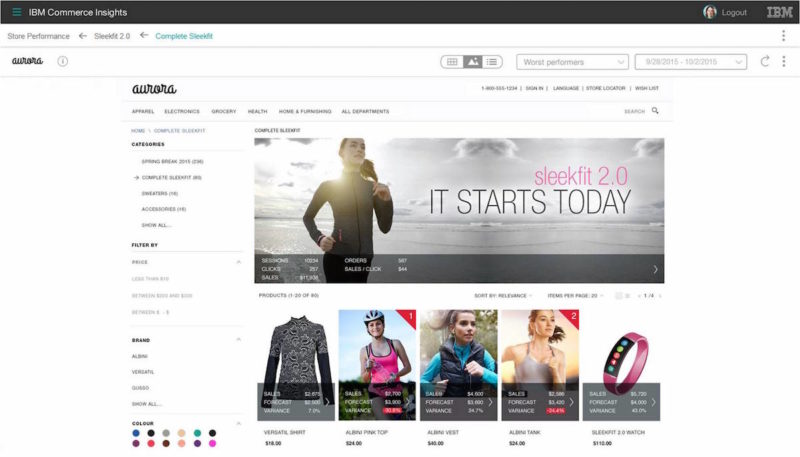IBM’s Watson Is Now In the Marketing And E-Commerce Business
With the launch last month of its Trends app and the recent release of Commerce Insights, the legendary computer system has branched out to yet another industry.
Since its win on the “Jeopardy” TV show, the powerful question-answering intelligence known as IBM Watson has been making its living providing insight in such fields as health care, finance, education and medical research.
But with the introduction last month of the IBM Watson Trends app — which allows shoppers to understand which products will probably sell out — and with Watson’s support for the recently announced IBM Commerce Insights, the technology platform is now in the marketing and selling business.
Commerce Insights offers users of IBM’s WebSphere Commerce platform a single, more visual view of customer and business performance data that previously required a variety of tools and reports. It draws on data from inventory, websites, sales and other sources and provides new perspectives on what the data mean.
For instance, Commerce Insights can layer its analytics right on the relevant part of web pages that the customer sees, so the marketer can immediately see what part of the page is working and how:
And, via an API, Watson Analytics allows users to query the data in ordinary language, in order to discover hidden relationships.
https://www.youtube.com/watch?v=Rdau2npWuKY
IBM gives the example of an online fitness retailer who might find that a newly launched line of active wear is underperforming sales expectations. So the retailer asks Watson to drill down and find out why. Watson displays results that show that although mobile traffic is high, it’s only strong in a handful of locations. As a result, the retailer could offer a discount in the identified underperforming areas.
Pete Wharton, Commerce Solutions Product Marketing Leader, noted that users of the IBM ecommerce platform can employ Commerce Insights without asking for Watson’s help.
But, he said, “if you do, you can ask in natural language and Watson can understand the data and make predictive suggestions.”
Many analytics providers these days are trying new ways of presenting the flood of complex data to marketers and business managers who are not data scientists.
BeyondCore, for instance, boasts of its ability to look at “every possible question” relating to data in a given area, such as determining what impacts revenue. It then surfaces on its own the most important answers, without requiring query after query. In fact, BeyondCore contends that Watson is its only real competition.
Wharton said that while many analytics solutions are employing machine learning to continually improve their performance, Commerce Insights with Watson lets a user see the data in context and take immediate action on the WebSphere platform in response. He also noted that Watson’s cognitive ability gives it a unique ability to “reason, learn and understand.”
At some point, he predicted, systems will be able to implement their own recommendations. If discount coupons need to be offered in specific markets, he said, the system will do so within set limits, so that marketers and business managers can “focus on strategic problems.”
Contributing authors are invited to create content for MarTech and are chosen for their expertise and contribution to the martech community. Our contributors work under the oversight of the editorial staff and contributions are checked for quality and relevance to our readers. MarTech is owned by Semrush. Contributor was not asked to make any direct or indirect mentions of Semrush. The opinions they express are their own.
Related stories
New on MarTech

